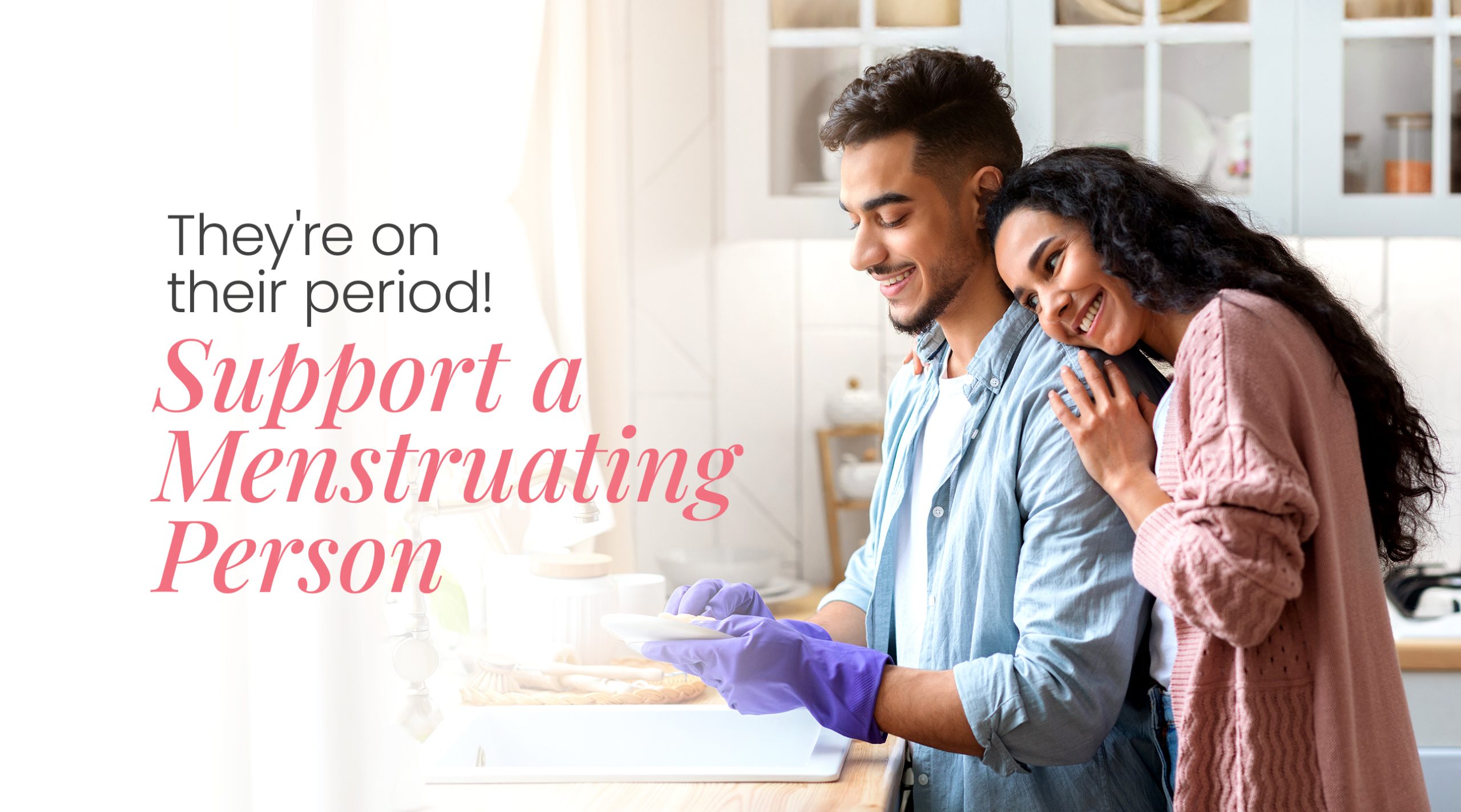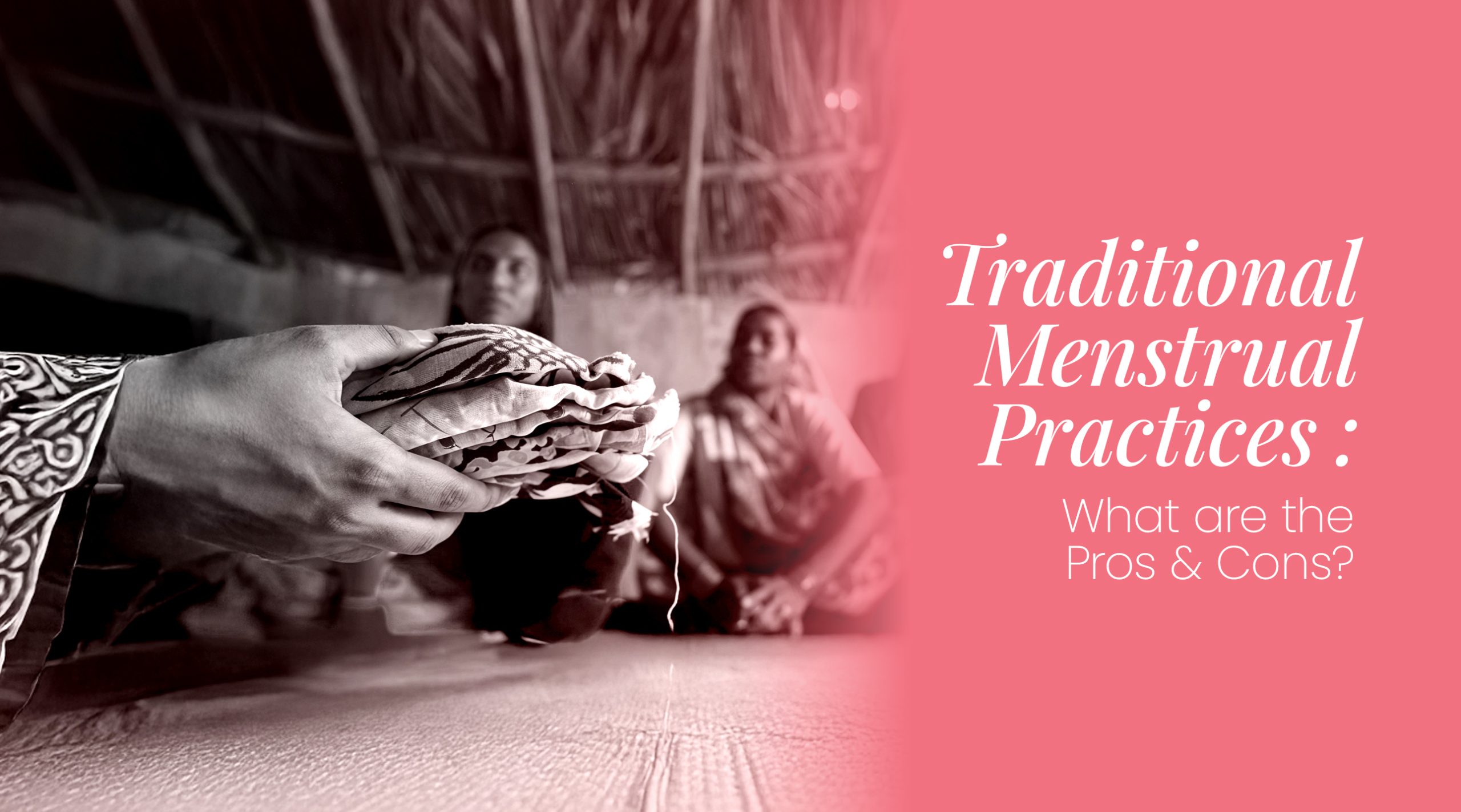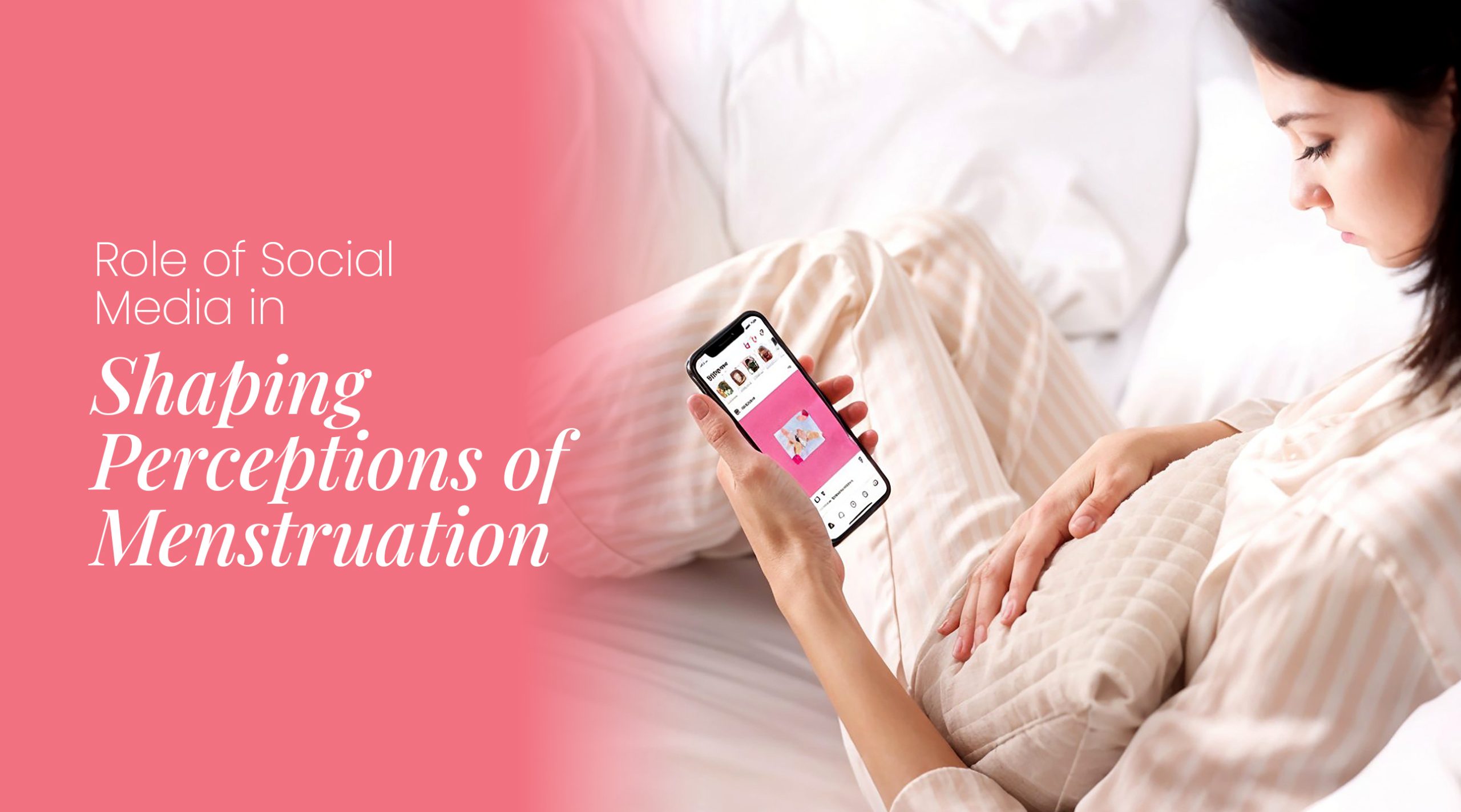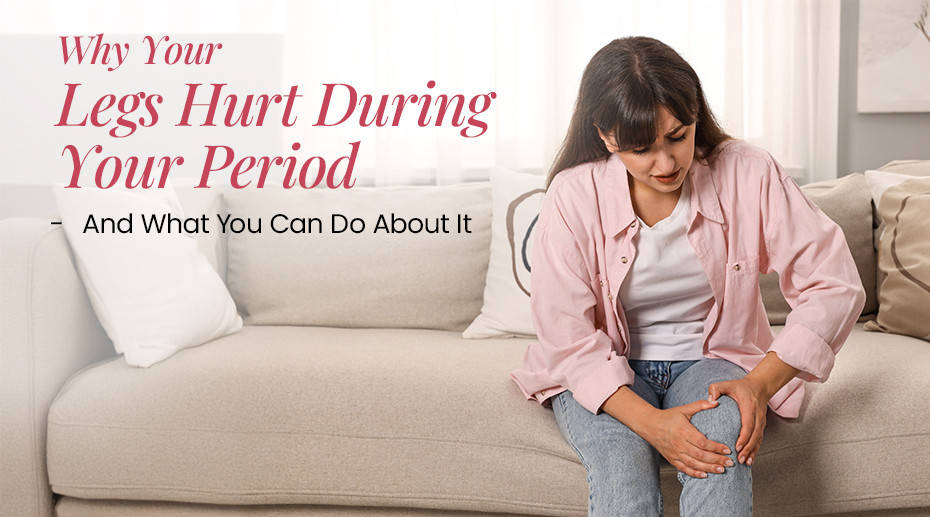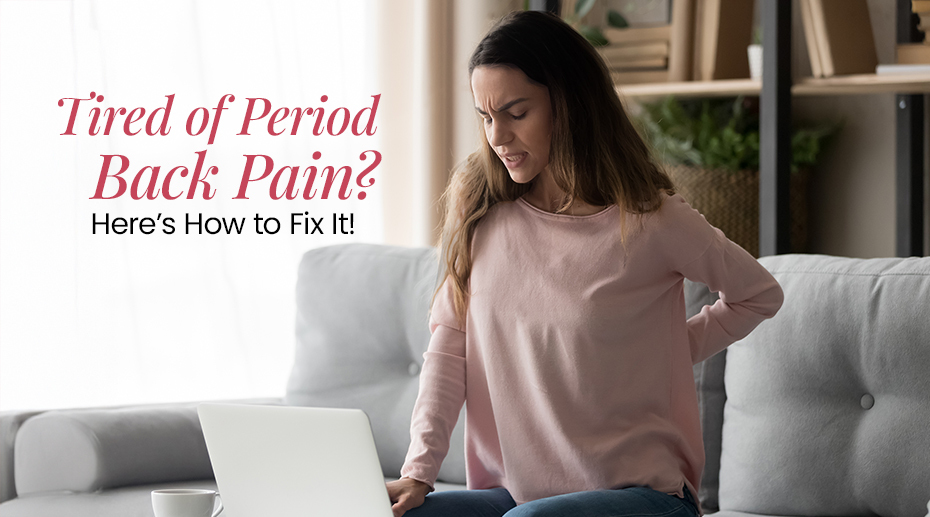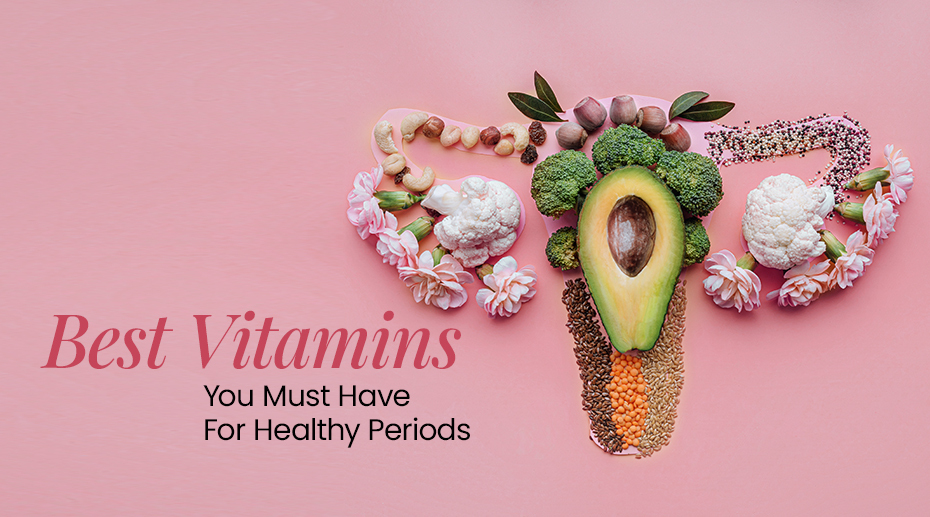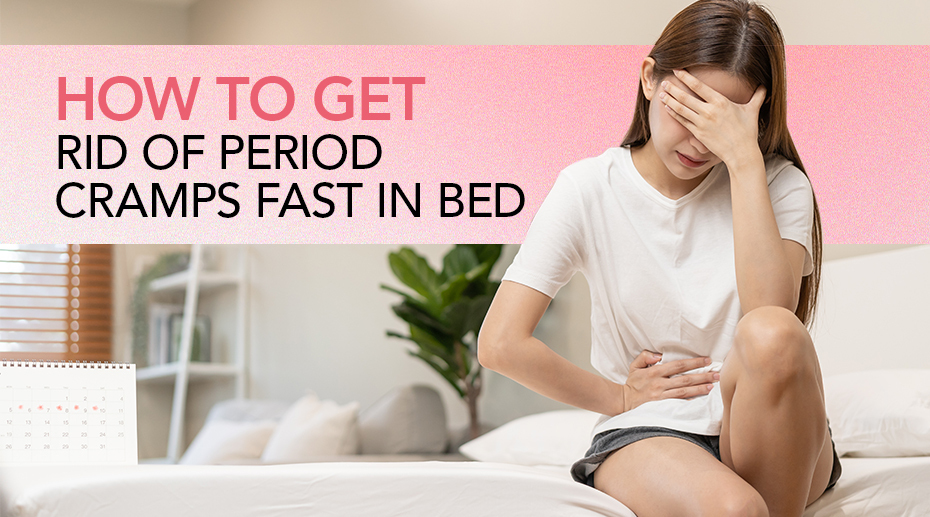
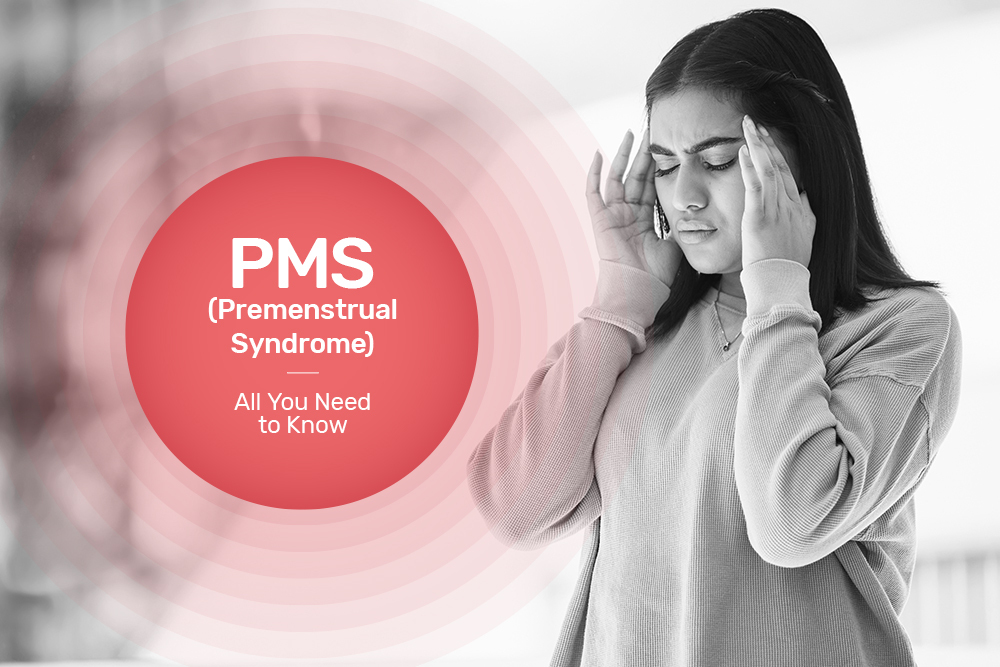
All You Need to Know about PMS (Premenstrual Syndrome)
Every woman is familiar with the monthly roller coaster of emotions and physical changes that occur before and in between the menstrual cycle. According to one study, around 48 to 50 percent of women face PMS issues that occur during periods, and out of them, almost 20 percent of them experience severe changes in their mental, emotional, and physical health. PMS are a sign that your periods are on the way.
However, some women feel very changes in their bodies, while for some they are horrible. One might face challenges because of PMS. The issue is not ignorable yet, some of them still don’t understand this condition. Some people don’t understand it and may make fun of this. Changes in emotions, mood, and physical discomfort are sometimes not understandable to some people thus it is found that they are bullied at their workplace, by their family, friends, etc. We need to educate them and let them know that PMS is a “REAL SITUATION” that a woman cannot ignore.
In this article, we will understand what PMS actually is, how it affects your menstruation, what causes PMS and what are the treatment options for the same.
What is Premenstrual Syndrome (PMS)?
Premenstrual Syndrome, commonly referred to as PMS is a collection of physical, emotional, and behavioral symptoms that typically occur in the days of ovulation and weeks leading up to menstruation. These symptoms can vary widely from person to person and even from cycle to cycle. Also, the signs may vary as you get older.
What Are the Premenstrual Syndrome Symptoms?
The symptoms of PMS show up in a different way. For some women, it least bothered them while for some women, it can be hard.
PMS symptoms typically begin a week or two before menstruation, although their onset can vary. The symptoms of PMS are generally categorized into three major groups:
Physical Symptoms
While PMSing, you may notice some physical symptoms like:
Bloating
Many women may experience abdominal bloating due to water retention. There is a feeling of heaviness in the lower abdomen area.
Breast Tenderness
Hormonal fluctuations can lead to breast tenderness or soreness. One can take water pills like “Diuretics” which helps to reduce bloating and breast tenderness, however, it is recommended to consult your doctor before going for any medications.
Headaches
Often, associated with the hormonal changes during the time of ovulation and PMS, some women go through mild to severe headache issues during this period.
Emotional Symptoms
PMS-related emotional and behavioral symptoms may include:
Mood Swings
PMS is infamous for causing mood swings during periods, which can range from irritability and anxiety to sadness or even anger. However, if it is beyond your control, then psychiatrist help should be taken as they can help you to lessen your anxiety due to hormonal changes during this period.
Depression
Some women may experience feelings of depression during this time. They may feel a sense of anxiety, and overthinking which then leads to depression for that period. If you or someone around you feel the same, then it is recommended to support them and help them by providing them comfort and making them feel safe and loved.
Crying Spells
Heightened emotions can lead to crying spells over seemingly small matters.
Other kinds of emotional symptoms like change in appetite, induced food cravings, change in sleeping patterns, rapid shift of mood, outbursts, lack of concentration, or finding it difficult to remember something are also found during PMS.
Behavioral Symptoms
Food Cravings
Cravings for sweet or salty foods are common during PMS. Also, sometimes during this period, it is also found that the woman may crave some food that they may dislike during normal days.
Fatigue
Many women report feeling unusually tired during this time. If you find women around you with these symptoms then you can help them in various ways that can reduce their fatigueness.
Insomnia
Some individuals may struggle with sleep disturbances, making it harder to get a good night’s rest.
The symptoms that we discussed here may vary in intensity, with some women experiencing only mild discomfort while others face more severe challenges.
Does PMS Affect Menstruation?
Yes, PMS can indeed affect menstruation. The hormonal imbalance that occurs during PMS can lead to various menstrual-related issues. For instance, it may cause intense mood swings, nausea, period pain, and irregularities in your menstrual cycle.
To manage period pain caused by hormonal imbalance, there are innovative solutions available. One may take medications, take good rest, and take medicines once in a while. However, taking them every month is not good for their body, however, it is not necessary to suffer from this pain thus one option that is natural and drug-free, and clinically tested is the use of a period pain relief machine based on TENS (Transcutaneous Electrical Nerve Stimulation) technology. This device sends electrical impulses to nerves, reducing pain perception, and relaxing muscle contractions. If you’re seeking an effective way to alleviate menstrual pain, these devices can be a game-changer.
What Causes Premenstrual Syndrome?
The exact causes of PMS remain a subject of ongoing research. However, several factors are believed to contribute to its development:
Hormonal Fluctuations
For the people who feel that PMS is in the head and she is faking, it becomes necessary to make them understand that they are real. They must know that these hormonal changes in women, particularly in estrogen and progesterone levels, during the menstrual cycle are one of the reasons for PMS. But why is it necessary to make them understand this?
It is simply because they may not have experienced it, they may not have gone through this situation during their time. For instance, we find our mothers and grandmothers say that however, it becomes necessary to educate them simply to get some peace of mind for yourself.
Chemical Changes in the Brain
Alterations in neurotransmitter levels, such as serotonin, may influence mood and emotional symptoms due to which they feel tired, angry, anxious, and overwhelmed.
Other symptoms like overstressing and dietary changes can also be seen in the women. Also, some lifestyle habits like smoking, and eating junk or outside food also lead to PMS.
What Are the Treatments for Premenstrual Syndrome (PMS)?
Managing PMS involves a combination of lifestyle adjustments and medical treatments. Lifestyle changes include maintaining a balanced diet, regular exercise, stress reduction, and adequate sleep. Additionally, avoiding caffeine, alcohol, and tobacco can help. Remember, you are not alone in this and we need to just seek for help that may sometimes provide relief mentally and emotionally. However, in some cases, medical treatments may be necessary if the PMS symptoms are severe and these can include:
Pain Relievers
Over-the-counter pain relievers like ibuprofen can alleviate physical symptoms.
Hormonal Birth Control
Birth control pills, patches, or hormonal IUDs can help regulate hormones and reduce PMS symptoms.
Antidepressants
In some cases, antidepressant medications may be prescribed to address severe emotional symptoms.
Consulting with a healthcare provider is crucial to determine the most appropriate treatment plan tailored to your specific needs.
Premenstrual Syndrome (PMS) is natural however it is often a challenging part of a woman’s menstrual cycle. While its symptoms can be disruptive, there are numerous strategies and treatments available to alleviate the discomfort. From some lifestyle changes to some medical interventions, finding the right approach may require some trial and error. Remember, you don’t have to suffer in silence—seeking professional help and exploring innovative solutions like period pain relief devices can help you manage PMS and enjoy a more comfortable and balanced life throughout your menstrual cycle.
FAQ Regarding PMS (Premenstrual Syndrome)
1. Does PMS affect you during your period?
Yes, PMS can affect your periods, causing symptoms like mood swings, physical discomfort, and period pain
2. What happens to your body during PMS?
PMS causes hormone-related changes that can lead to mood swings, bloating, fatigue, and other physical and emotional symptoms.
3. How many days does PMS start before the period?
PMS typically starts 1 to 2 weeks before a period.
4. What hormones make PMS worse?
Estrogen and Progesterone fluctuations can worsen PMS symptoms.
5. How can I balance my hormones to avoid PMS?
Balancing hormones to avoid PMS involves a healthy lifestyle: regular exercise, a balanced diet, stress management, and consulting a healthcare provider.

